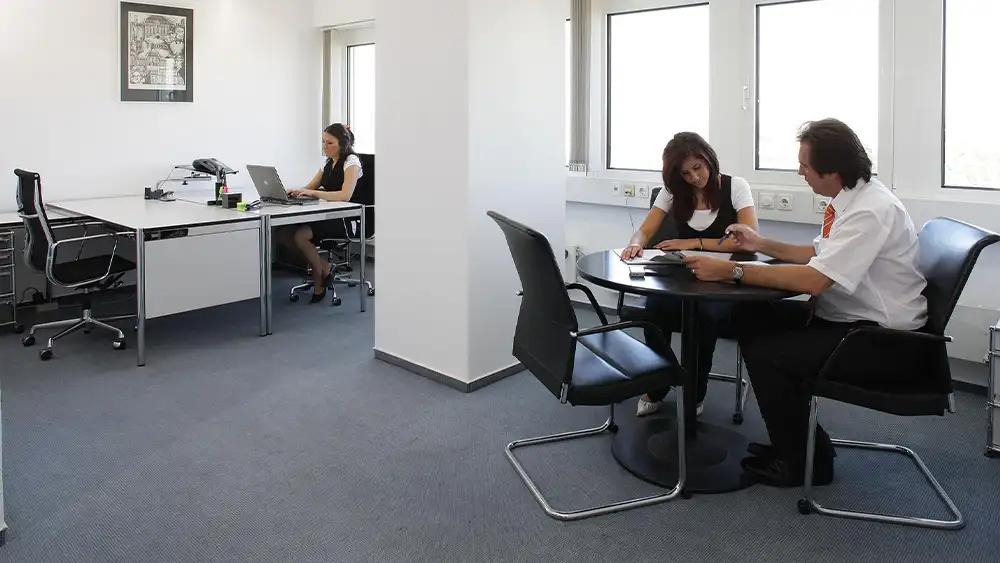What Investments in Your Employees Can Improve Retention?

In today’s competitive business environment, retaining talented employees is a critical challenge. Understanding the needs and desires of employees is the first step in fostering a workplace environment that encourages long-term commitment. According to Positive Psychology, only 32% of employees feel engaged in their work, indicating a significant opportunity for businesses to improve.
The impact of disengagement is not just on productivity but also on employee turnover. Engaged employees are more likely to remain with a company longer because they feel valued and motivated. Addressing this engagement gap requires a strategic approach that includes recognizing employees’ contributions and effectively communicating business goals.
A vital element in enhancing retention is creating a culture that supports collaboration, innovation, and personal growth. Businesses that succeed in this area often see lower turnover rates and achieve a more stable workforce. Ensuring that employees feel they have a voice within the organization can significantly contribute to their overall job satisfaction and loyalty.
Role of Workplace Amenities in Employee Satisfaction
Providing access to amenities like coffee and snacks can have a surprisingly positive impact on employee satisfaction. According to USA Today, as many as 59% of office workers have reported leaving the office to buy coffee or snacks daily. This minor distraction can reduce productivity and imply unmet employee needs in terms of comfort and convenience.
A tailored investment in workplace amenities not only saves time but also fosters a sense of care and concern from the employer. When employees feel that their well-being is prioritized, it can lead to increased morale and motivation. Additionally, having these amenities available on-site helps in cultivating a more connected and happy workplace environment.
Beyond just tangible perks like coffee or snacks, businesses should consider offering relaxation spaces, quiet zones, or recreational activities. These investments can serve as a powerful tool in keeping employees refreshed and ready to tackle their tasks. Ultimately, when employees feel rejuvenated, they are more likely to maintain high levels of satisfaction and remain with the company.
Importance of Professional Development Opportunities

Investing in employees’ professional growth is another critical factor in improving retention. Though most staffing employees (73%) work full time, comparable to the overall workforce (75%), opportunities for advancement can greatly influence long-term retention. Businesses that offer training and development programs demonstrate their commitment to their employees’ career growth.
Offering professional development opportunities can include sponsoring courses, workshops, or providing access to online training. These investments empower employees by equipping them with new skills and enhancing their capabilities. As a result, employees become more adaptable to industry changes and can confidently take on increased responsibilities.
Moreover, when employees see clear career progression paths within the organization, it fosters loyalty and a strong professional relationship. This not only boosts individual employee satisfaction but collectively strengthens the business by retaining institutional knowledge. Investing in employee development is a win-win that aligns employee growth with business goals.
Creating a Supportive and Inclusive Work Environment
A supportive and inclusive work environment can significantly impact an employee’s decision to stay with a company. Businesses should strive to create a workplace culture where diversity is celebrated, and all employees feel welcomed. This includes being mindful of bias and actively working to create equitable opportunities for all employees.
Employees who feel included are more likley to engage actively and contribute to innovation within the company. Creating support systems such as mentorship and peer networks can further encourage a sense of belonging. Business leaders should make it a priority to regularly assess workplace culture and find ways to improve inclusivity.
Investing in diversity training and inclusive policies not only enhances employee satisfaction but also broadens the business’s ability to meet diverse client needs. When employees see themselves represented in leadership and decision-making, it empowers them and enriches the company dynamics. To sum up, fostering an inclusive environment is a crucial approach to retaining top talent.
Balancing Work-Life Integration
In an era where work-life balance is increasingly valued, businesses must adapt by providing flexible work arrangements. This could mean allowing remote work, flexible hours, or even adopting a hybrid work model to better accommodate employees’ personal lives. Larger aspirations for work-life integration can dramatically improve employee satisfaction.
Flexibility in work arrangements enables employees to manage personal responsibilities without impacting their professional duties. This autonomy can lead to higher job satisfaction, as employees feel respected and trusted by their employers. Subsequently, when employees experience a balanced lifestyle, it reduces stress and burnout, thus fostering retention.
Final Words
By implementing policies that support work-life balance, businesses can demonstrate empathy and understanding towards their employees’ non-work commitments. Employers must recognize that employees are more likely to stay with a company long-term if they feel their personal needs are met. Consequently, businesses that actively promote work-life integration are better able to retain their top talent.

news via inbox
Sign up and never miss out on the latest news and updates at HighStuff




